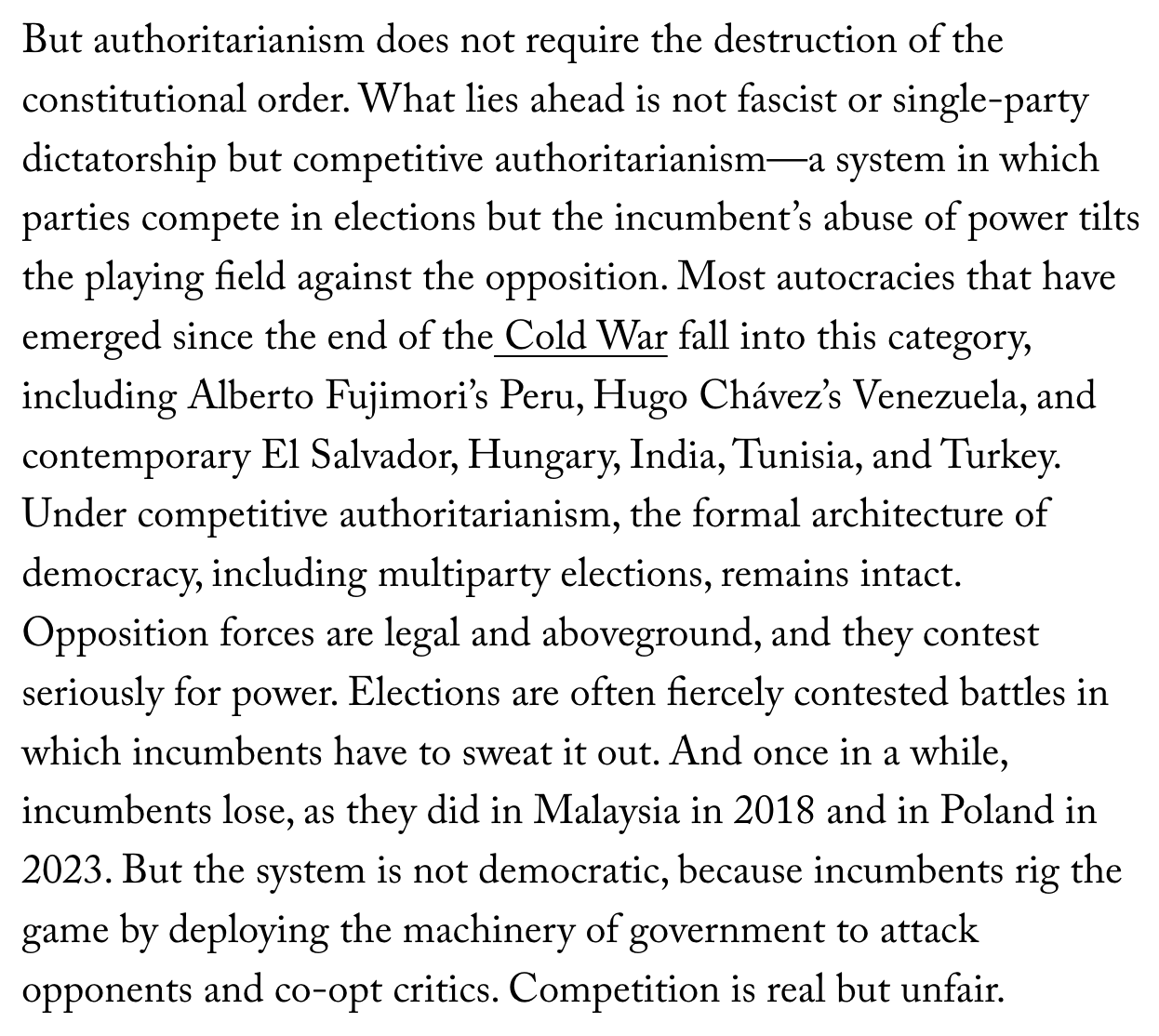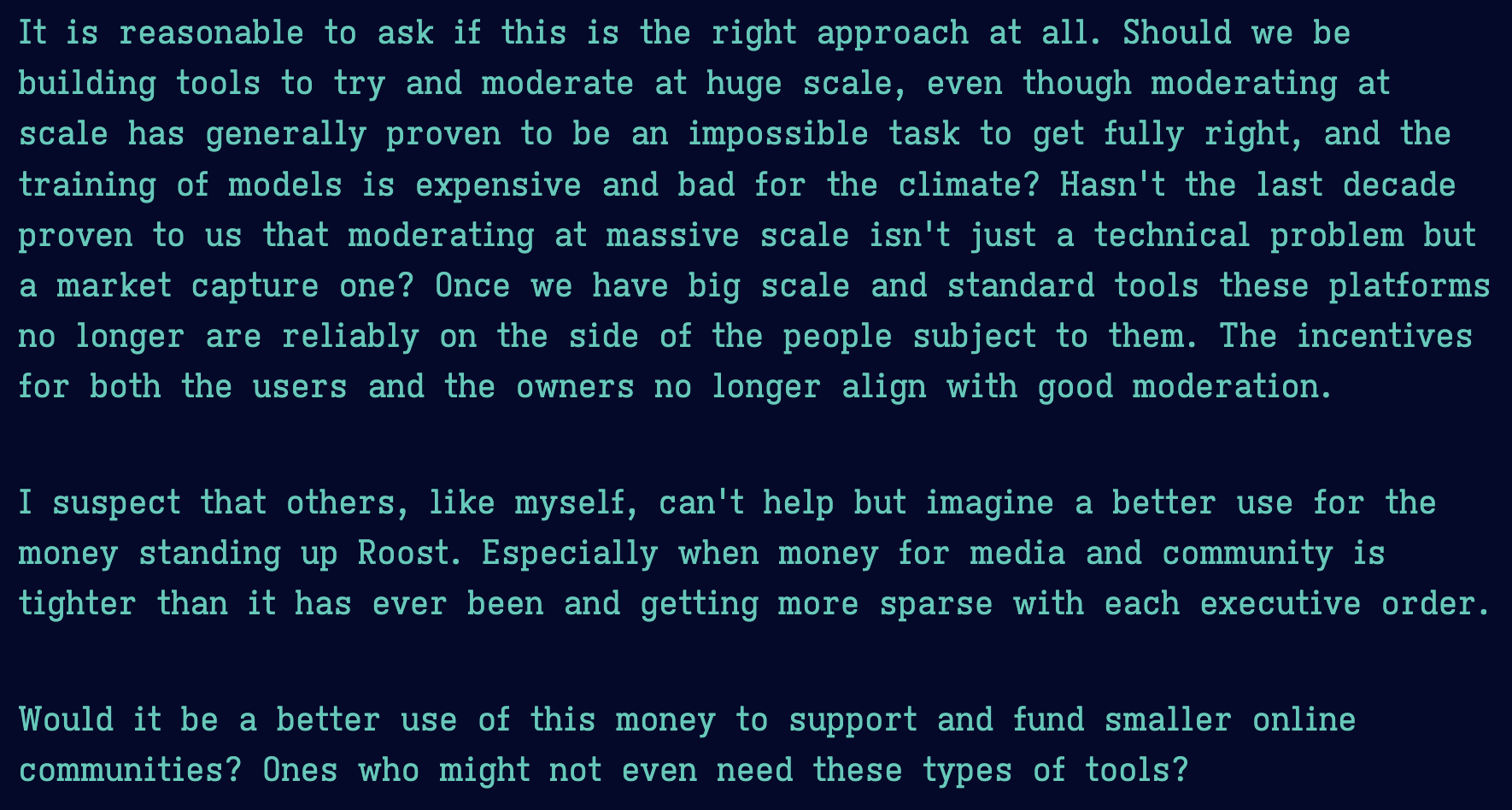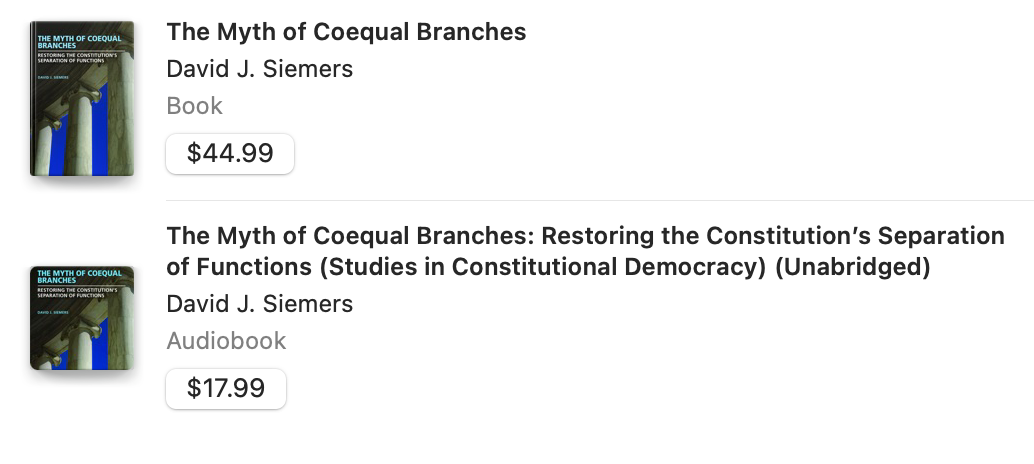perhaps worse than a US withdrawal from NATO would be a US that sowed chaos from within the alliance. Europe still requires functional security arrangements.
one day a Russian prisoner is freed (Marc Fogel, great news). the next day the US Secretary of Defense concedes Ukraine’s territorial integrity and aspiration to join NATO. our transactional President sure knows how to strike a deal.
which is worse?
no one told us how entertaining the apocalypse could be.
or alternatively, the road to hell is paved with engaging content!
Newsom should announce a trip to Denmark for “exploratory talks”. https://universeodon.com/@Darkphoenix/113988599271616917
quite a price difference, apple books.
(tbf it's similar from other sources.)
@KimSJ @Chronotope (getting rid of them is my basic theory for why we should revise section 230) https://www.interfluidity.com/v2/8093.html
@megmac but it mustn't always be.
under this definition, hasn't Congress — the most important branch of the Federal government — been under "competitive authoritarianism" for decades?
see e.g. https://www.opensecrets.org/elections-overview/reelection-rates
from #StevenLevitsky #LucanAhmendWay https://www.foreignaffairs.com/united-states/path-american-authoritarianism-trump
ht @williamcb.bsky.social @casmudde.bsky.social
 Text: But authoritarianism does not require the destruction of the constitutional order. What lies ahead is not fascist or single-party dictatorship but competitive authoritarianism—a system in which parties compete in elections but the incumbent’s abuse of power tilts the playing field against the opposition. Most autocracies that have emerged since the end of the Cold War fall into this category, including Alberto Fujimori’s Peru, Hugo Chávez’s Venezuela, and contemporary El Salvador, Hungary, India, Tunisia, and Turkey. Under competitive authoritarianism, the formal architecture of democracy, including multiparty elections, remains intact. Opposition forces are legal and aboveground, and they contest seriously for power. Elections are often fiercely contested battles in which incumbents have to sweat it out. And once in a while, incumbents lose, as they did in Malaysia in 2018 and in Poland in 2023. But the system is not democratic, because incumbents rig the game by deploying the machinery of government to attack opponents and co-opt critics. Competition is real but unfair.
Text: But authoritarianism does not require the destruction of the constitutional order. What lies ahead is not fascist or single-party dictatorship but competitive authoritarianism—a system in which parties compete in elections but the incumbent’s abuse of power tilts the playing field against the opposition. Most autocracies that have emerged since the end of the Cold War fall into this category, including Alberto Fujimori’s Peru, Hugo Chávez’s Venezuela, and contemporary El Salvador, Hungary, India, Tunisia, and Turkey. Under competitive authoritarianism, the formal architecture of democracy, including multiparty elections, remains intact. Opposition forces are legal and aboveground, and they contest seriously for power. Elections are often fiercely contested battles in which incumbents have to sweat it out. And once in a while, incumbents lose, as they did in Malaysia in 2018 and in Poland in 2023. But the system is not democratic, because incumbents rig the game by deploying the machinery of government to attack opponents and co-opt critics. Competition is real but unfair.
@KimSJ @Chronotope i'm not sure he's disagreeing? isn't he suggesting that maybe a world of small, human-moderated fora would be better than presuming large, algorithmic fora are the norm? (he doesn't address a profit/non-profit distinction, but it seems to me he's challenging the status quo.)
from @Chronotope https://aramzs.xyz/thoughts/roost-must-prove-itself-good-thats-a-reasonable-request/
 Text: It is reasonable to ask if this is the right approach at all. Should we be building tools to try and moderate at huge scale, even though moderating at scale has generally proven to be an impossible task to get fully right, and the training of models is expensive and bad for the climate? Hasn't the last decade proven to us that moderating at massive scale isn't just a technical problem but a market capture one? Once we have big scale and standard tools these platforms no longer are reliably on the side of the people subject to them. The incentives for both the users and the owners no longer align with good moderation. I suspect that others, like myself, can't help but imagine a better use for the money standing up Roost. Especially when money for media and community is tighter than it has ever been and getting more sparse with each executive order. Would it be a better use of this money to support and fund smaller online communities? Ones who might not even need these types of tools?
Text: It is reasonable to ask if this is the right approach at all. Should we be building tools to try and moderate at huge scale, even though moderating at scale has generally proven to be an impossible task to get fully right, and the training of models is expensive and bad for the climate? Hasn't the last decade proven to us that moderating at massive scale isn't just a technical problem but a market capture one? Once we have big scale and standard tools these platforms no longer are reliably on the side of the people subject to them. The incentives for both the users and the owners no longer align with good moderation. I suspect that others, like myself, can't help but imagine a better use for the money standing up Roost. Especially when money for media and community is tighter than it has ever been and getting more sparse with each executive order. Would it be a better use of this money to support and fund smaller online communities? Ones who might not even need these types of tools?
@Phil @realcaseyrollins the great thing about universal benefits is they are denied to no one (who meets very straightforward verifiable criteria, like age and actually attending school, for example). so no politician or bureaucrat gains power from making themselves a gatekeeper for access.
@Phil @realcaseyrollins what's good about the Nordics is everybody has the option to take benefits, you don't have to make being poor your job. most people take benefits that complement work (education, child care) rather than living on the dole as they could, because they want to live rich lives, even though they're not forced to. (they have higher labor force participation than we do!)
@Phil @realcaseyrollins at a sufficient level of generality we might agree on some things! i hesitate to get back into details, though, because i doubt we'd agree for long. and the day is passing with much undone.
@realcaseyrollins that's a very real concern. in general there are conflicts between discretion and fairness. on the one hand, without discretion, you get the kind of stupidly procedural systems people describe pejoratively as "bureaucracy". on the other hand, when you introduce discretion, you introduce the possibility of unfair bias and corruption. i spend a fair amount of my time trying to think about how we should navigate this (really hard!) trade-off. 1/
@realcaseyrollins a black kid shouldn't get arrested for jaywalking when a white kid wouldn't. but no kid should be arrested for jaywalking if he's being chased by an assailant. mechanistic application of the law has all or none arrested, but it's fair. discretionary application would exonerate the chased, but it also might invidiously exonerate the white kid and not the black. it's hard! /fin
@Phil @realcaseyrollins nothing has been perfectly binding. everything in real life "leaks". but, say, the 1st Amendment really has conditioned life here in a way quite different than most predecessor societies, and even most contemporary peers. the Constitution is not self-exercising, but it has been exercised a fair amount!
@Phil @realcaseyrollins you'll like this one, even though it's from an old commie. https://www.youtube.com/watch?v=yQGw5lArivE
@Phil @realcaseyrollins i agree that pathological shirkers exist, but they are a tiny fraction of us. most humans are desperate to be of value to one another, one way or another (not always in commercial markets).
